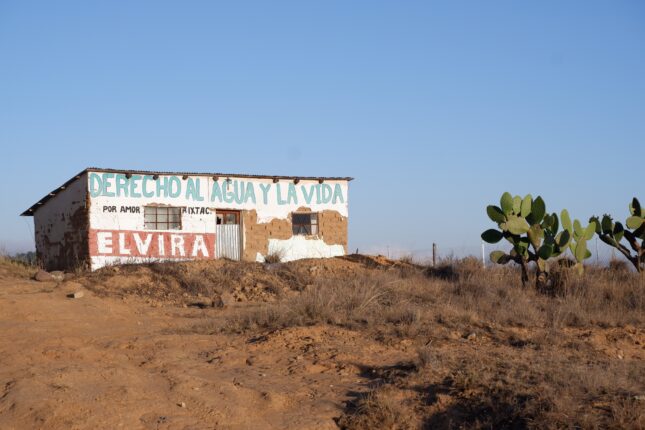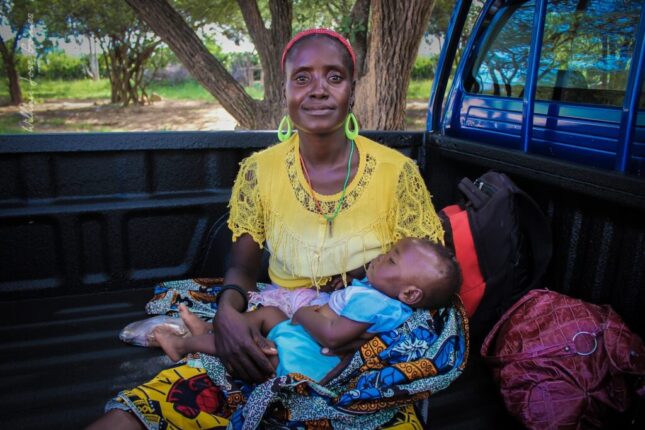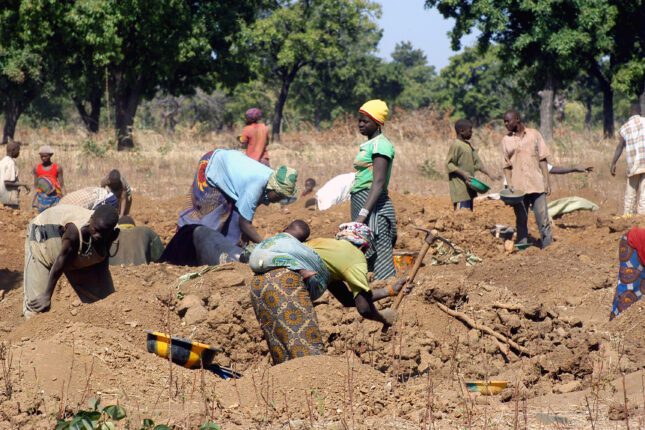-
ECSP Weekly Watch | January 27 – 31
›
A window into what we’re reading at the Wilson Center’s Environmental Change and Security Program
Declining Fish Stocks Threaten Lake Tanganyika Fishing Communities (Al Jazeera)
For the millions who live on the shores of Lake Tanganyika, fishing is a way of life that has sustained generations. However, recent declines in fish production in the world’s largest freshwater lake have devastated Tanzania’s fishermen and prompted questions of the sustainability of the decades-long practice.
-
A Proposal for SDG 18: Integrating Indigenous Knowledge
›
Fifty-three years have passed since the 1972 United Nations Stockholm Conference on the Human Environment that led to the establishment of the United Nations Environment Program (UNEP). Yet a recent UN report describes the global efforts to meet the Sustainable Development Goals (SDGs) created to articulate aims and track progress over the past decade as “alarmingly insufficient.”
-
Conflict in Sudan: Widespread Sexual Violence
›
This article originally appeared on Enheduanna, a blog of the Wilson Center’s Middle East Women’s Initiative.
Only a few years ago, the world celebrated the women-led revolution in Sudan that ousted the former dictator Omer El-Basher after 30 years in power. Women were fed up with his government. Those who used to live in the urban areas experienced the humiliating public order laws: they were arrested and flogged for wearing trousers or walking around with no headscarves.
-
ECSP Weekly Watch | January 13 – 17
›
A window into what we’re reading at the Wilson Center’s Environmental Change and Security Program
The Success of Community-based Conservation in Africa (Yale 360)
Across Africa, herders once seen as threats to wildlife have now become vital conservationists. In a transformative shift from “fortress conservation” to community stewardship, they are protecting iconic species like elephants and lions as they coexist with their livestock.
-
ECSP Weekly Watch | January 6 – 10
›
A window into what we’re reading at the Wilson Center’s Environmental Change and Security Program
Room for Justice in Vietnam’s Energy Transition? (The Diplomat)
Vietnam’s crackdown on environmental leaders such as Hoàng Thị Minh Hồng on disputed charges raises significant concerns about human rights, transparency, and civil society’s role in its energy transition. These arrests have garnered international attention, but Vietnam’s government argues that they had nothing to do with environmental work. And while Hoàng and other activists have been released, their work remains curtailed. The message is clear: you’re not welcome here.
-
Low-Carbon Transitions: A Spur (and a Solution) to Colonial Violence?
›
At the recent G20 meeting in June 2024 in Rio de Janeiro, United Nations Secretary General António Guterres gave an ominous warning: “Unless we limit global temperature rise to 1.5 degrees Celsius, spiraling disasters will devastate every economy.” Guterres implored governments to “speed-up the just transition from fossil fuels to renewables,” and declared that “the end of the fossil fuel age is inevitable.”
-
Obstetric Violence in Sub-Saharan Africa: The Struggle for Dignified Maternal Care
›
In August 2013, Josephine Majani, a mother of three from Bungoma County in Kenya, endured a harrowing birth experience. Despite her repeated pleas for help during labor, the nurses in the hospital ignored her. She struggled to walk to the labor ward while in intense pain, but all of its beds were occupied. Majani was forced to give birth on the cold concrete floor. Subsequently, nurses there subjected her to verbal and physical abuse—even making her carry her placenta back to the labor ward.
-
Children and Slaves are Mining our Critical Metals (and Not Just Cobalt)
›
This article is adapted from Vince Beiser’s “Power Metal” newsletter.
If you’ve heard anything about the dark side of the shift to renewable energy and digital tech—one of the main topics of my new book, Power Metal: The Race for the Resources That Will Shape the Future—you’ve probably heard about the children working in cobalt mines in the Democratic Republic of Congo (DRC). That particular outrage has been covered by major international news outlets, human rights organizations and another recent book, Cobalt Red. But it turns out there are many other places where children, as well as enslaved adults, are producing the metals that go into our electric cars and cell phones.
Showing posts from category human rights.










